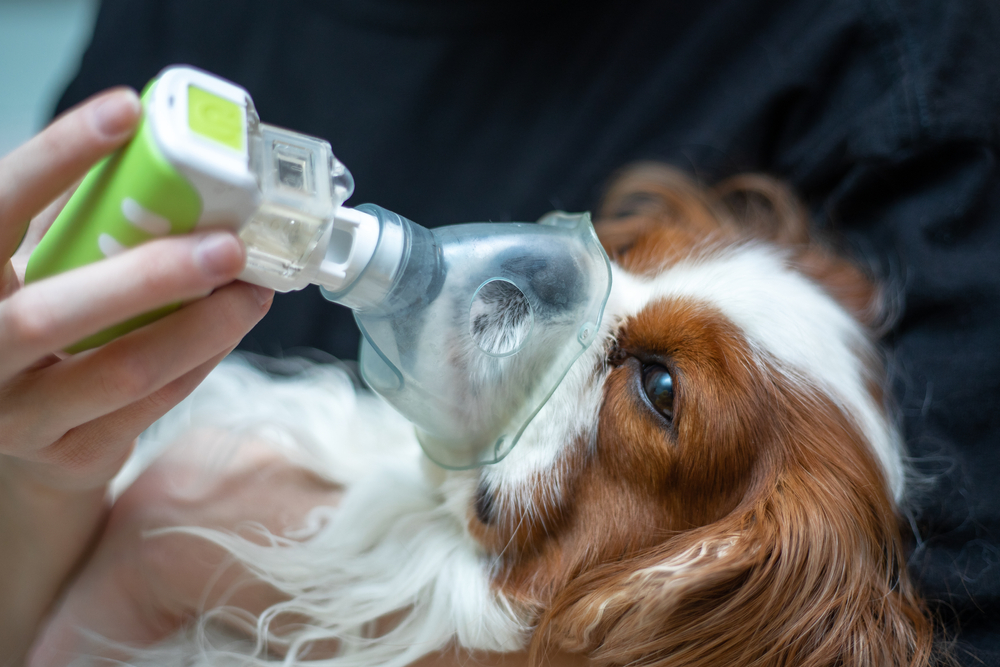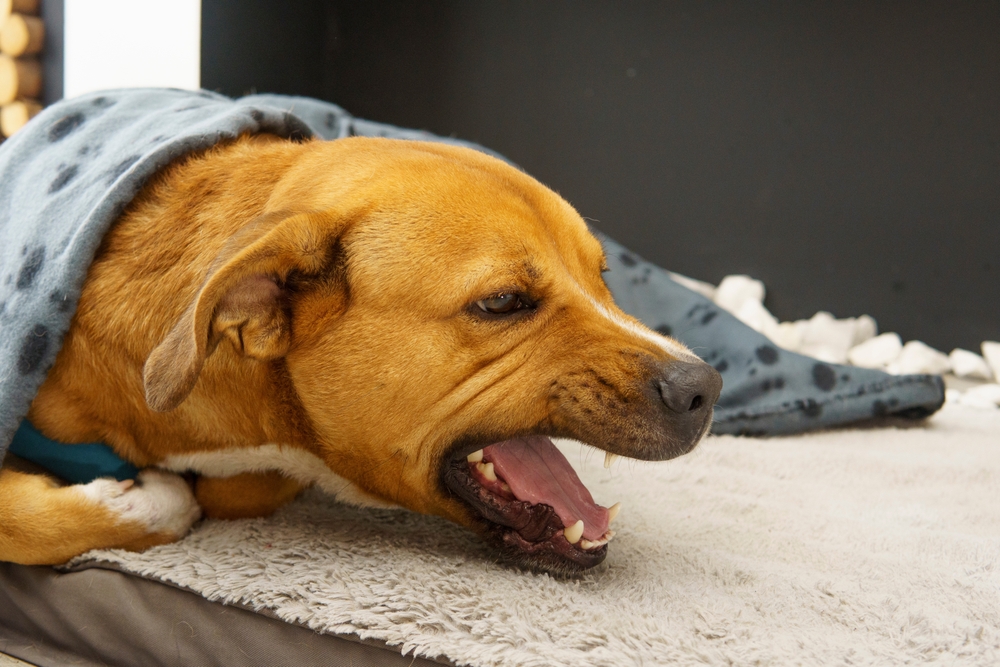Whether it’s a gentle sneeze or a deep, hacking cough, respiratory sounds in pets can be unsettling—especially when you’re unsure what they mean. At Cobb & Co. Veterinary Clinic, we understand how much your pet means to you. When something sounds “off,” it’s natural to worry. But not every wheeze or sniffle is a sign of something serious—some are harmless, while others need quick veterinary attention.
In this guide, we’ll walk you through what common respiratory sounds can indicate, when to be concerned, and how to stay ahead of your pet’s respiratory health.
Why You Should Pay Attention to Respiratory Symptoms
Just like in people, respiratory issues in pets can range from mild and self-limiting to signals of more serious health conditions. The earlier you catch a potential problem, the better your chances of effective treatment.
By staying informed and alert, you can:
- Catch warning signs early
- Avoid unnecessary stress (for both you and your pet)
- Know when it’s time to call the vet
- Prevent complications with timely care
What This Guide Covers
- Common causes of coughing, sneezing, wheezing, and labored breathing
- How to recognize red-flag symptoms
- When to schedule a vet visit
- How to prevent respiratory issues before they start
You can always turn to Cobb & Co. Veterinary Clinic if you’re unsure what your pet’s symptoms mean.
Common Respiratory Conditions in Pets
Kennel Cough in Dogs
What it is: A highly contagious respiratory illness often caused by Bordetella bronchiseptica and other pathogens. Dogs often pick it up in places like boarding facilities, grooming salons, or dog parks.
Symptoms to watch for:
- Persistent, dry “honking” cough
- Gagging, nasal discharge, watery eyes
Prevention & treatment:
- Vaccination is key
- Rest and supportive care typically lead to recovery
Learn more from the AKC’s Kennel Cough Guide.
Brachycephalic Obstructive Airway Syndrome (BOAS)
What it is: A condition affecting flat-faced breeds like Pugs, Bulldogs, and Persians, where shortened airways cause restricted airflow.
Symptoms to watch for:
- Noisy breathing or snoring
- Reverse sneezing, wheezing, and fatigue during walks
- Difficulty cooling down, especially in heat
Prevention & treatment:
- Weight management is critical
- Surgical correction may be needed for severe cases
Dive deeper into BOAS from Cornell Vet.
Respiratory Distress
What it is: A medical emergency that can result from pneumonia, asthma, or heart disease.
Urgent symptoms:
- Open-mouth breathing
- Blue or pale gums
- Rapid or labored breathing
- Collapse or weakness
What to do: Seek veterinary care immediately.
Download this helpful AAHA guide on respiratory distress.
Upper Respiratory Infections (URIs)
What they are: Viral or bacterial infections affecting the nose, throat, and sinuses—especially common in shelter cats and social dogs.
Symptoms:
- Sneezing and nasal congestion
- Watery or goopy eyes
- Mild fever or lethargy
Prevention & treatment:
- Vaccination is essential
- Most cases resolve with rest, hydration, and sometimes antibiotics
Check out Feline URIs – ASPCA Pro.
Other Common Causes of Coughing and Sneezing
Allergies
What they are: Environmental triggers like pollen, dust, or mold can irritate your pet’s respiratory tract.
Symptoms:
- Sneezing, watery eyes, coughing, itchy skin
Management:
- Limit exposure, use antihistamines as prescribed, and keep indoor air clean
More tips from Purdue Veterinary Hospital
Collapsed Trachea (Dogs)
What it is: A weakening of the cartilage in the trachea, common in small breeds like Yorkies and Pomeranians.
Tell-tale signs:
- Coughing that sounds like a goose honk
- Gagging or trouble breathing
Treatment:
- Weight control, medications, and in severe cases, surgery
Explore more on Collapsed Trachea – AKC
Heart Disease
Why it matters: Heart issues can cause fluid buildup in the lungs, leading to persistent coughing and difficulty breathing.
Symptoms:
- Coughing at rest or during sleep
- Lethargy, shortness of breath, fainting
What to do: Schedule regular exams, especially for older pets or predisposed breeds.
Read more from Cummings School of Veterinary Medicine – Tufts
When to Call the Vet: Red Flags to Watch For
You know your pet best. If something doesn’t feel right, don’t wait. Here are signs that mean it’s time to get help:
Call your vet right away if your pet has:
- Severe or persistent coughing
- Labored or open-mouth breathing
- Blue, pale, or grey gums or tongue
- Lethargy or sudden collapse

Be especially cautious if:
- Symptoms appear suddenly or worsen quickly
- Your pet is a brachycephalic breed
- You notice fever, nasal discharge, or behavior changes
Still unsure? Visit our page on Sick Pet Visits for more info or to schedule an exam.
Preventing Respiratory Problems in the First Place
Keep up with vaccinations
Vaccines help protect your pet from viruses like Bordetella and feline herpesvirus.
Maintain a Healthy Weight
Extra weight puts added pressure on your pet’s lungs and heart. Talk to us about a nutrition and exercise plan tailored to your pet’s needs.
Improve Indoor Air Quality
Dust, dander, and smoke can aggravate sensitive pets. Keep their environment clean, use air purifiers, and limit exposure to household irritants.
Great tips at the Indoor Pet Initiative.
Schedule Regular Checkups
Routine exams help catch subtle changes early—before symptoms become serious. Prevention is always easier (and more affordable) than treatment.
Inhale Confidence, Exhale Worry
If your pet is coughing, sneezing, wheezing, or just doesn’t seem to be breathing normally, trust your instincts. Early detection leads to better outcomes—and peace of mind.
At Cobb & Co. Veterinary Clinic, we’re here to guide you every step of the way. Whether it’s a seasonal allergy, a case of kennel cough, or something more serious, we’ll get to the bottom of it and help your pet breathe easy again.
Schedule a check-up today—we’re here when you need us most.






Leave A Comment